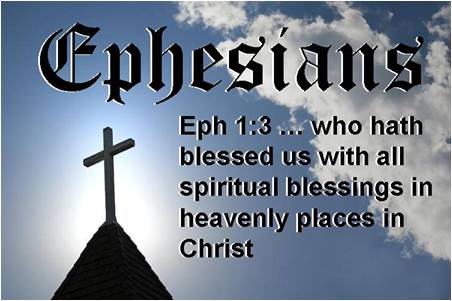 Ephesians is a “Prison Epistle,” along with Philippians, Colossians, and Philemon (see Eph 3:1, Eph 4:1, and Eph 6:20). Written by Paul from Rome, the epistle expands on themes in Colossians, much as Romans does to Galatians. Whereas Colossians develops the all-sufficiency of Christ to the Church, Ephesians shows the blessings of that “fullness” enjoyed by the members of God’s family. The idea of unity resulting from reconciliation runs strong through the book (Eph 1:9-10; Eph 2:16-18; Eph 3:4-6; Eph 4:3-6; Eph 5:30-32; Eph 6:18-20). It is possible that the epistle was actually a circular letter to the churches of Asia. Paul’s goal is to inform the saints of their privileged status and exhort them to live in a way worthy of their standing.
Ephesians is a “Prison Epistle,” along with Philippians, Colossians, and Philemon (see Eph 3:1, Eph 4:1, and Eph 6:20). Written by Paul from Rome, the epistle expands on themes in Colossians, much as Romans does to Galatians. Whereas Colossians develops the all-sufficiency of Christ to the Church, Ephesians shows the blessings of that “fullness” enjoyed by the members of God’s family. The idea of unity resulting from reconciliation runs strong through the book (Eph 1:9-10; Eph 2:16-18; Eph 3:4-6; Eph 4:3-6; Eph 5:30-32; Eph 6:18-20). It is possible that the epistle was actually a circular letter to the churches of Asia. Paul’s goal is to inform the saints of their privileged status and exhort them to live in a way worthy of their standing.
Gene Cunningham - January 24, 2007
1 Thessalonians #9

Scripture References: 1 Corinthians 12:1-11, 1 Thessalonians 2:13-20, 1 Thessalonians 2:1-12, 1 Thessalonians 2:7
From Series: "1st Thessalonians - 2006"
The Thessalonians were persecuted for their faith. Paul's first letter to them provides comfort, reminding them of the details of Christ's return for His Church ("The Blessed Hope") and providing practical spiritual lessons for living.

